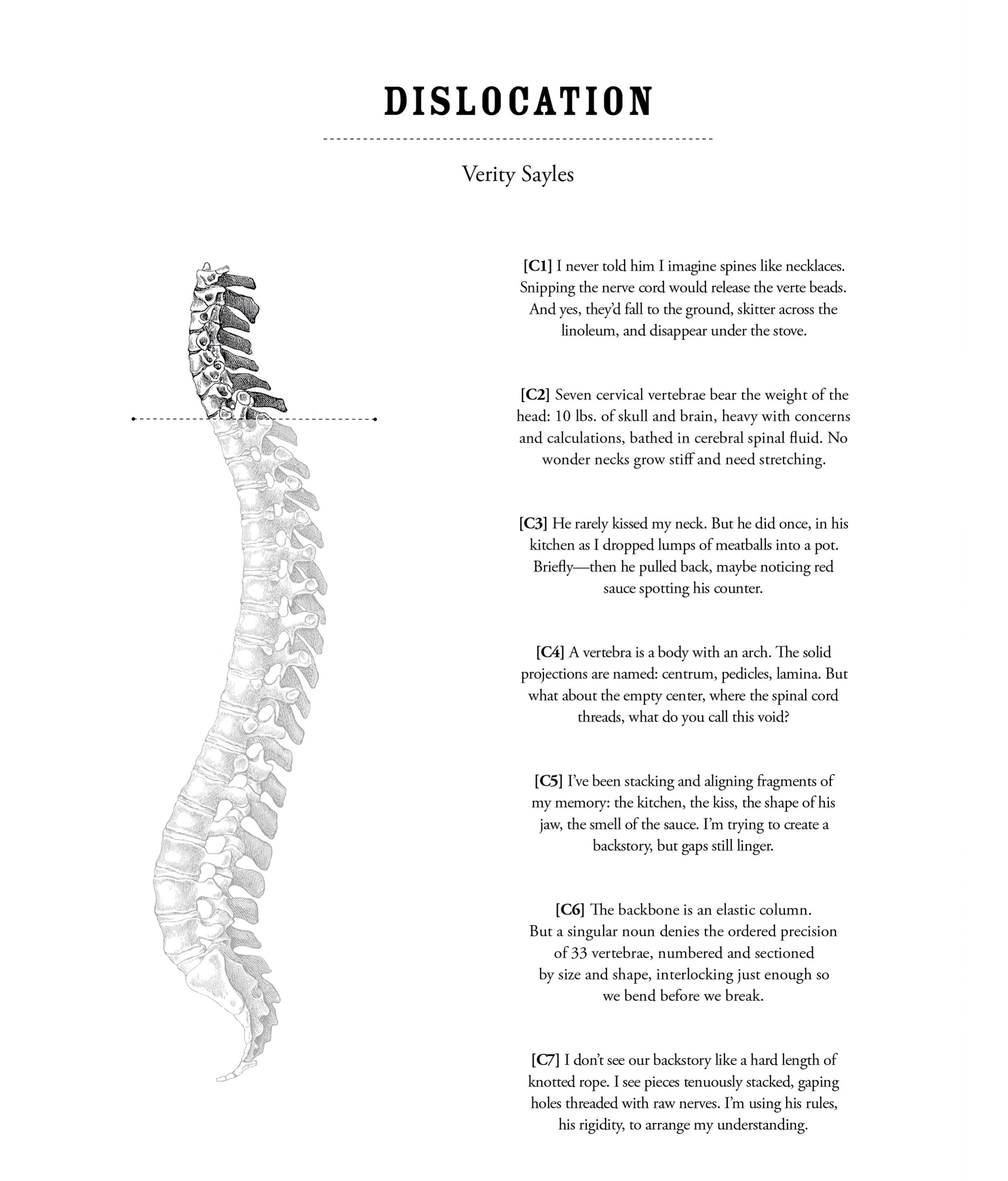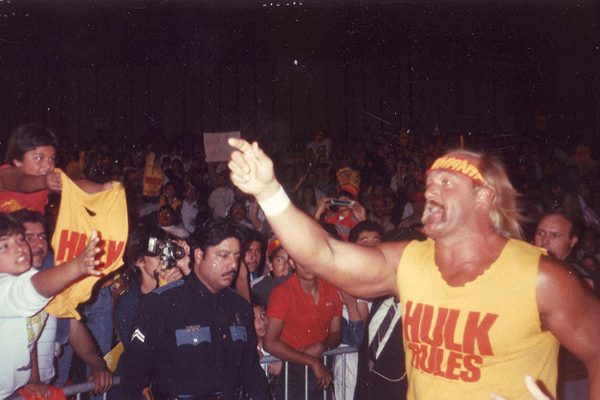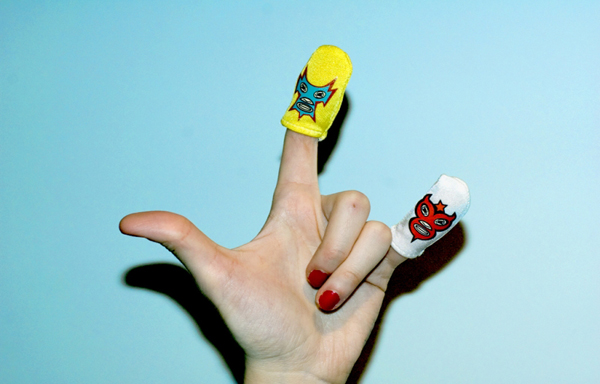I didn’t know much about Curt Swan when I met him—only that he’d penciled a lot of Superman and Superman Family comics during the “Silver Age” of comic books—that hazily define time that covers the 1960s and early 1970s. I knew that he was important, that he was someone I ought to know—the way I felt like I probably needed to listen to more John Lennon and read more Ernest Hemingway.
Read MoreBrands and Promises by Alex Khansa
Precious moments. That’s what life is all about. Your first step. Your first word. Your first bike ride with no training wheels. The first time you hold a pretty girl’s hand. When she rests her head on your chest and you smell a fruity scent on her braided hair. The new or hand-me-down car you get—that first gear you shift, grabbing the wheel with both hands, grandma style. It’s beautiful. But that’s not my story; mine can be summarized in five-year increments, not in fragmented moments.
Read MoreWhen We Were Animals by Lacy M. Johnson
There was a time when we lived in a place that was green and alive, where trees grew together in clusters we called forests, where we grew food we could eat right from the soil, where we could swim in the creeks after working in the fields and the water felt clean and cold. We could swim in the rivers, too, protected only by our own skin, and in the lakes we could catch fish that we might cook over an open fire after the sun had set. We would gather logs for this from the forest floor, rub two sticks together until they smoked and then with our breath or a bit of wind, they would catch a flame and burn.
Read MoreOn Exhibitionism by Joe Bonomo
The tiny flat at 102 Edith Grove in west Chelsea, London, is located in a district that was derided, centuries ago, as the “World’s End.” The name still seems apt: from the looks of things, I could push my fist through a water-damaged wall pretty easily, but I’m scared of what I might find living behind it.
Read MoreDislocation by Verity Sayles
I never told him I imagine spines like necklaces.
Read MoreFemme Fatale by Felicia Rose Chavez
By Felicia Rose Chavez
Felicia Rose Chavez is a digital storyteller whose work features regularly on National Public Radio. She holds an M.F.A. in creative nonfiction from the University of Iowa. Former Program Director to Young Chicago Authors and founder of GirlSpeak, a literary webzine for young women, Felicia teaches creative writing and new media as a Riley Scholar-in-Residence at Colorado College. Find her at www.feliciarosechavez.com.
Schoolhouse at Corbin Hollow. Shenandoah National Park, Virginia. c. 1935
For You and I to See by Ryan McDonald
Virtually every Saturday, my girlfriend and I make the hour-and-change drive to Shenandoah National Park from DC’s suburbs, where we rent a townhouse apartment with three other cash-strapped graduate students. She and I each went half in on the $80 it costs to buy an annual national park pass and have used it so many times that our trips now feel free. A routine visit to our favorite refuge looks like this: we do a six to eight-mile hike; we drive down Skyline Drive; we eat dinner at the lodge in Big Meadows (My “treat” is a craft beer. Hers is blackberry ice cream pie); we catch the sunset.
Read More700 pounds: Telling Facts and Fictions around WrestleMania III by Andrew Cartwright
Perhaps the most contentious aspect of that initial statement is the number 93,000. On video of WrestleMania III, the crowd isn’t very well illuminated, so it is difficult to see how well they fill the expanse of the Silverdome; in the sections that are shown on film, nearly every visible inch is covered with thronging bodies. The din when Hogan walks down the long entrance ramp to the ring, and throughout the match whenever the tide turns in Hogan’s favor is constant and deafening.
Read MoreThe Sadnesses of March: In Search of Extreme Emotion by Ander Monson
“Why listen to sad music if it makes one feel sad?” asks Stephen Davies, a professor of psychology at the University of Auckland, in 1997. I ask myself this not for the first time as I’m neck-deep into the Joy Division discography on the way to a job I do not dread, mourn, or fear. The singer sings “Don’t turn away / in silence” and I do not turn away, not as I drive past sunblasted car dealerships and burrito shops on Tucson, Arizona’s, Speedway Boulevard, a street Life magazine once called the “ugliest street in America.” I turn away in song, if not in silence.
Read MoreWhat Real Men Do by Silas Hansen
He has heard people say this his whole life, even when he was a kid, even back when he was still trying, desperately trying, to be happy as a girl—and later, too, after he told people the truth of his gender (“Just trying to help,” they would say)—so he knows it must be true: He shouldn’t be afraid of anything.
Read MoreThis is by Christen Noel
There’s a wrong way to leave a husband. A bag with clothes for one night. Half a tank of gas. A man crying on the floor.
Read MoreAfter Sandra Bland by Rachel Charlene Lewis
My partner is driving ninety miles per hour on our road trip from east to west coast when we’re pulled over to the side of an empty highway through Kansas. Her white, freckled skin is glowing in the early evening sunset, twists of pink and purple and orange billow uninhibited against the flat planes on either side of the highway. It is mostly quiet but for one or two cars passing us every dozen or so miles. They are mostly trucks, their drivers mostly older white men.
Read MoreDreams in a Mirror by Gabrielle Bellot
It was a wonder none of us were expelled for breaking broomsticks over each other’s backs in secondary school, for hitting each other with thick foldable chairs we scarcely blocked, for using the tiny library on the lowest level of one of the two classroom buildings in order to wrestle each other instead of returning home on the bus or cleaning the chalkboards as the Brothers who taught our school lessons had commanded was our duty for that day.
Read MoreThe Making of a Hive by Amy Wallen
I hear a tiny tap, the smallest of sounds like a thumbtack has fallen on the tile. Or, someone very small is tapping on the window asking permission to come in. I hear another tap making me glance toward the stove. But I see nothing. I turn back to rinse off my one plate, my one glass.
Read MoreAll We Know by Latifa Ayad
My father gave me my mother’s last name. Kirsch. A good, white-sounding name. I inherited nothing from him. I have gray eyes, light brown hair, skin that burns easily on trips to the gulf. They named me Chi, for the Cochiti pueblo, where my parents first met as part of a tour group. They didn’t name me Zara, my grandmother’s name. Zara was supposed to be an apology, because he missed his mother’s funeral, and because he was never going back to Libya, not after he tasted freedom, the sweat that beaded on my mother’s upper lip in New Mexico, and the fry bread they served at the pueblo, hot, drizzled in honey.
Read MoreHair by Carmella Guiol
My hair speaks the language of conquistadors, the cousins of Columbus.
But it doesn’t tell the story of frijoles negro and yucca frita, ropa vieja and abuelas. My hair can’t tell you about my mother, age nine, boarding a plane with a doll in one hand and her brother’s palm in the other, destination unknown. My hair doesn’t tell you what my first words were after “Mami.”
Read MoreLife without Power Steering or How a Muslim Family Parks by Sam Pierstorff
The engine never failed on our mother’s rusty 1962 Studebaker Lark that drooled puddles of oil onto our driveway and shot black smoke from the tailpipe like an old musket, but most days I hoped it would so that my mother could shoot it dead like a crippled horse, and my brother and I could take the school bus instead.
Read MoreAmbrosia by Terrance Flynn
As a freshman in the mid-1980’s, I acquired a reputation no college student really wants—that of a good listener. Lacking a love life of my own to speak of, I was doomed to hear others go on about theirs. By second semester, I feared succumbing to the fate of a eunuch, which I imagined was a slow death caused by constant exposure to second-hand romance.
Read MoreWhy Some Animals are Sexier than Others by Sarah Bates
This is not a poem about feelings.
This is an essay about six white rhinoceros. Six white rhinos and the misunderstanding of a mixtape.
This is not a poem about you making me a mixtape.
It’s an essay about the fastest routes to God. Frank Sinatra, the Bronx Zoo, and week old pots of coffee with the light still on. God.
Read MoreDeath by Refrigerator by B. J. Hollars
When inventor Oliver Evans first conceived of his “refrigeration machine” in 1805, he never dreamed it could be a killer. He, much like Jacob Perkins and John Gorrie (both of whom would soon improve upon the design), dreamed simply of extending the preservation properties of food.
Read More


















